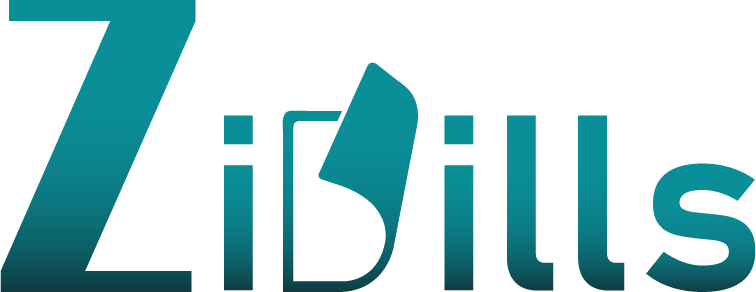How to Handle Your Hospital’s Revenue Cycle Management in 2023

The healthcare industry is flourishing in the blink of an eye owing to the exceptional advancement in the sphere of technology. The use of Artificial Intelligence (AI) in Application development and website development has thoroughly transformed the work and the hospital management system of the clinics and hospitals. Managing the revenue cycle is the complex task and it requires expertise and skill. Healthcare organizations are taking the help of established Revenue management companies that can streamline and effectively manage the revenue process. The online platforms developed are contributing their best to streamline healthcare organizations. All healthcare professionals strive to provide the best facilities and care for their clients, patient care and steps improve patient satisfaction are pivotal to every healthcare unit.
For hospitals and other healthcare organizations to remain financially stable, effective revenue cycle management (RCM) is essential. Hospitals can employ several tactics in 2023 to enhance RCM and guarantee a quick and easy procedure. Here are some crucial actions to take in the current year to manage the revenue cycle at your hospital:
Streamline Patient Scheduling and Registration: To reduce billing errors, make sure patient registration is correct and thorough. Implement online registration and appointment scheduling to cut down on paperwork and enhance data accuracy. It will not only reduce the administrative tasks, but it will also organize the work process. Accuracy will increase leaving negligible chances of errors.
Verification of Insurance and Eligibility: Before patient appointments, confirm insurance eligibility and coverage to avoid claim denials. Use tools for instantaneous insurance verification to get information. There are a variety of online platforms available that can help verify insurance and eligibility. You can identify the cases with valid insurance or without valid insurance.
Pre-Certification and Pre-Authorization: Many cases of payments are delayed owing to pre-certification or Pre-authorization cases. Whenever pre-authorizations or pre-certifications are required for treatments or services, obtain them. To prevent payment delays, make sure to keep insurance providers informed on time.
Patient communication that is open and honest: Building rapport with a client or patient is significant. You must know how to extract insurance and other information or details from the patients. Clear communication is the key to success in every business. Inform patients up front about their financial obligations, such as copayments, deductibles, and out-of-pocket costs. Give concise, understandable benefits statements and justifications.
Correct and prompt coding: Awareness of medical codes is an unavoidable task. You must keep your medical staff abreast of any changes or modifications in the codes in the medical field. To ensure accurate and legal coding procedures, train and audit the medical coding team. Keep up on ICD-10 codes and other coding developments.
Submission and management of claims: To avoid code rejection, it is pertinent to file and submit a claim on a timely basis without any delay. To reduce processing times, submit claims as soon as possible. There is multiple claim-submitting software available in the market. You may use any of the claim-submitting software. Use claim-scrubbing software to identify mistakes before filing.
Management of Denials and Appeals: Create a thorough denial management procedure to quickly detect and address claim denials. Form a staff that is solely responsible for handling appeals and pursuing unpaid claims. Filing claims, and keeping track of claims submitted, claim status, rejected, or cleared requires expertise. A team of experts should be dedicated to re-submission of the claim.
Options for Patient Payment: All the patients and clients look forward to flexible and handy ways of making payments. Online mode of payment is the frequently opted way of making payments. Consequently, offers a range of flexible payment alternatives, such as online payment options and payment plans. Make sure you take patient financial aid programs into account.
Analytics for the Revenue Cycle: To track important RCM indicators, spot patterns, and enhance financial performance, use data analytics technologies. Review reports on cash flow, days in accounts receivable (AR), and denial rates regularly. It is crucial to keep track of the revenue.
Systems integration and automation
Invest in RCM tools that can automate processes like billing, follow-up, and claim processing. For seamless data interchange, make sure your electronic health record (EHR) system and RCM software are integrated. EHR and RCM play a predominant role in streamlining the work process and workflow.
Readiness for Compliance and Audits: Keep up to date with HIPAA and billing regulations, as well as other healthcare regulations and compliance standards. Conduct routine internal audits to find and fix compliance problems. It will help to regulate your organization’s function.
Staff Education and Training: Learning and embracing change is the key to success. Make sure to send your employees on training programs, and workshops where they are learning out of the box. Employees, and members who are involved in the revenue cycle, including physicians, coders, billers, and administrative employees, should get continual training.
Keep yourself updated: Attend relevant workshops or seminars and keep up with industry best practices. Keep an eye on and lessen uncompensated care, identifying uninsured patients who might be qualified for Medicaid or other assistance programs is one strategy to reduce uncompensated care.
Vendor administration: To ensure cost-effectiveness and service quality, evaluate and negotiate contracts with third-party suppliers such as billing services and collection agencies. You can make more money or save money by making intellectual and wise decisions.
Effective revenue cycle management is a continuous process that calls for cross-departmental cooperation and regular performance metric monitoring. You may improve financial results and deliver top-notch patient care in years to come and beyond by putting these tactics into practice and continuing to be proactive in controlling your hospital’s revenue cycle. Zibills is the top-rated billing platform that you can rely on to streamline your revenue management process. If you are also willing to revolutionize your work culture, improve patient experiences and want to make your healthcare revenue management process more organized you must try Zibills and transform your professional lives.
